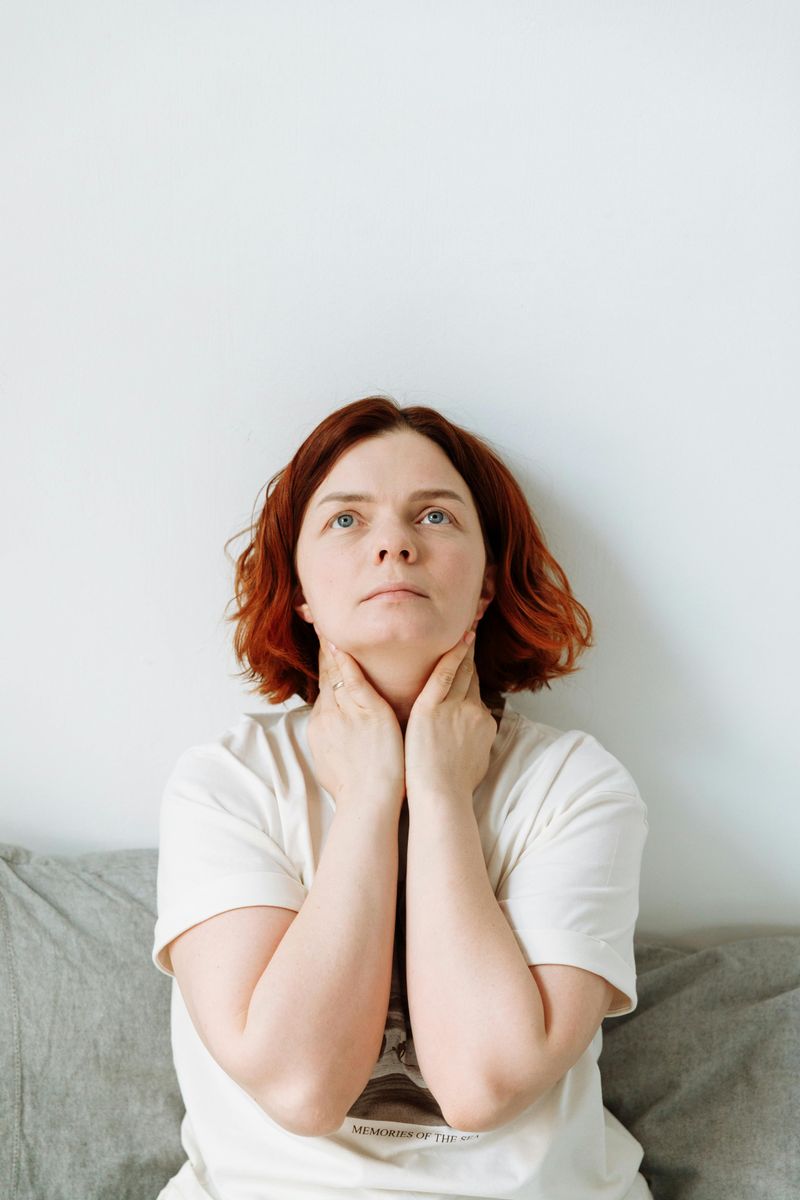Why You Feel Exhausted After ‘Doing Nothing’ All Day

Ever flopped onto the couch after a “lazy” day and wondered why you’re somehow more tired? Spoiler: doing nothing isn’t the same as resting.
Your mind, body, and environment can quietly siphon energy while you’re barely moving. Read on to uncover the sneaky culprits—and simple fixes—that explain your exhaustion after a whole day of “rest.”
1. Your Brain Was Working Overtime Even if Your Body Wasn’t

Your thoughts can sprint a marathon while your body barely shuffles to the fridge. Rumination, half-formed worries, and mental tab-switching burn glucose and attention like a browser with 42 tabs open. The result: cognitive fatigue that feels suspiciously like you climbed a mountain, even though you only climbed into bed.
Background stressors—finances, relationships, world news—keep the mind juggling, processing, predicting. Each anticipatory scenario costs energy, even if no action follows. When the brain rehearses danger or perfection, your body prepares for action that never comes.
To counteract, try externalizing loops: brain-dump lists, voice notes, or a “worry window.” Schedule intentional mental idling like a short walk without headphones. Practice box breathing or a two-minute sensory check-in. By giving thought trains a station to pull into, you free up cognitive bandwidth and reclaim actual rest.
2. You Never Truly Relaxed—Your Nervous System Stayed in Alert Mode

The ping of a notification can be a tiny lion’s roar to your nervous system. Even when you’re “chilling,” micro-stressors—buzzing phones, traffic noise, unresolved texts—keep cortisol humming in the background. You don’t consciously feel hunted, yet your body stays braced, burning energy to be ready for anything.
This simmering vigilance blocks the downshift into parasympathetic calm. Without that gear change, digestion, tissue repair, and deep rest don’t get their turn. You end the day wired-tired: exhausted, but not relaxed.
Build a buffer zone. Silence nonessential notifications, use do-not-disturb, and switch to analog for an hour—paper book, pen-and-paper journaling, a quiet nook. Try a five-minute physiological sigh or progressive muscle relaxation. When you teach your body safety on purpose, the rest response finally clocks in to do its job.
3. Unfinished Tasks Sat in the Back of Your Mind All Day

That laundry mountain and the unsent email are louder than they look. Open loops hijack attention, creating a cognitive drag known as the Zeigarnik effect. Your brain keeps poking you—Hey, are we doing this?—consuming energy with every mental nudge.
Invisible clutter accumulates just like physical clutter. And because you didn’t actually tackle the tasks, you never get the relief of completion dopamine. The day ends heavy with “shoulds,” even if you barely moved.
Defang the loops with 10-minute micro-closures. Set a timer and do the smallest actionable step: start the wash, draft one sentence, place a sticky note plan. Use a parking lot list to store tasks outside your head. Celebrate tiny completions with a quick checkmark ritual. Closing even one loop can lift an outsized weight off your energy.
4. You Spent Too Much Time in Passive Rest Instead of Active Rest

Streaming shows and scrolling feel restful, but they rarely refill the tank. Passive rest distracts without repairing; it soothes the surface while deeper systems stay idle. That’s why a binge can leave you foggy, not refreshed.
Active rest—gentle movement, creative hobbies, nature time—switches on circulation, mood chemistry, and body-based recovery. It’s like airing out a stuffy room instead of just spraying perfume. Small inputs of motion or meaning can flip your internal lights back on.
Swap one passive block for 15 minutes of active rest: a stroll, light stretches, watercolor doodles, or tending plants. Try the 20-20-20 rule: every 20 minutes of screen time, stand and glance 20 feet away for 20 seconds. You’ll return to the couch clearer, and paradoxically, more satisfied.
5. You Didn’t Move Enough to Trigger Energy Production

Energy begets energy. Long sedentary stretches slow circulation, lower mitochondrial activation, and tell your body, “We’re power-saving today.” The result is a sluggish loop: the less you move, the less you feel like moving.
Movement acts like a biological “on” button. Even light activity—five-minute walking breaks, a few squats, stretching—pumps oxygen and glucose to your brain, boosting alertness. Think of it as charging the battery, not draining it.
Use frictionless cues: water breaks that double as steps, phone calls taken while pacing, a yoga mat unrolled by the sofa. Try movement snacks every hour and a brisk 10-minute walk midafternoon. These microbursts compound into a real shift, replacing couch-lag with a steady hum of energy.
6. Your Environment Was Draining

Rooms can tire you out like a low-battery icon. Dim lighting strains eyes, stale air dulls alertness, and clutter keeps your nervous system subtly on guard. Noise—neighbors, appliances, street hum—chips away at focus and calm.
The body constantly negotiates with its surroundings. If your space whispers chaos or gloom, you spend energy shielding yourself from it. Even if you “did nothing,” your senses worked overtime.
Refresh the scene: open a window, clear one surface, add a plant, and switch to warmer task lighting. Use white noise for control, or noise-canceling headphones. A five-minute tidy sprint can change how your brain reads the room. Think of it as environmental hygiene—small tweaks that let you rest without fighting your space.
7. Your Sleep Quality Was Poor—Not Just the Quantity

Eight hours can still feel like a nap gone wrong if the quality is off. Fragmented sleep, late-night scrolling, and light leakage slash deep and REM stages. You wake technically “done” but physiologically unfinished.
Sleep architecture matters more than the math. Without stable cycles, memory, mood regulation, and tissue repair get shortchanged. Then the next day feels like wading through pudding, even on a “rest” day.
Upgrade the basics: consistent bedtime, cool dark room, and screens dimmed an hour earlier. Consider a wind-down ritual—stretching, reading, low-light lamp—and caffeine cutoffs. If snoring or restlessness persist, investigate sleep apnea or iron levels. Quality sleep is the quiet engine that powers every other type of rest.
8. You Experienced Decision Fatigue Without Realizing It

Picking a show, scrolling menus, choosing snacks—tiny choices pile up like pebbles in your shoes. Each decision spends mental currency, especially when options are endless. By evening, even trivial choices feel heavy, and your brain waves the white flag.
Decision fatigue doesn’t require big stakes to drain you. Ambiguity and constant micro-judgments are enough. The paradox of choice can look like freedom yet feel like sandpaper on attention.
Reduce choice friction: pre-plan meals, outfit formulas, and default routines. Put favorites in a “go-to” folder—shows, playlists, recipes. Use constraints as kindness: time-limit browsing, cap options to three, or flip a coin for low-stakes picks. Fewer decisions today means more energy for the ones that matter.
9. The Guilt of ‘Not Being Productive’ Drained You Emotionally

Rest shaming is a stealthy energy thief. Even while lounging, an inner supervisor whispers, “You should be doing more.” That self-judgment triggers stress chemistry and emotional friction, draining you before you’ve even stood up.
Productivity isn’t the same as worth, but our brains forget. When downtime becomes a moral referendum, the nervous system never exhale-signals. You’re left both under-rested and over-guilted.
Reframe rest as maintenance, not indulgence—like charging your phone. Time-box it: declare, “This hour is for recovery,” and honor it. Try a compassionate note to self, or list three things rest enables tomorrow. Permission is powerful; it turns idle moments into fuel instead of a fight.
10. You Didn’t Do Anything Emotionally Fulfilling

Days without spark feel mysteriously heavy. When joy, curiosity, or meaning are missing, your brain doesn’t get the rewarding neurotransmitters that refresh attention. Numbness masquerades as tiredness, so you assume more couch time is the cure.
Emotional nutrition matters. A single moment of wonder—a song on repeat, a new recipe, a heartfelt text—can shift your chemistry. Purpose doesn’t have to be grand; it just has to be real to you.
Seed the day with one nourishing act: a hobby micro-session, five thankful lines, or learning one fascinating fact. Schedule a “tiny delight” break and protect it like a meeting. When fulfillment shows up, energy often follows, and the day finally feels worth staying awake for.

Comments
Loading…